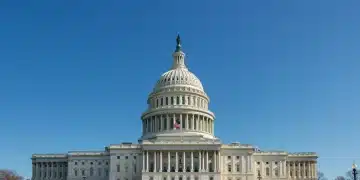Pro-Palestinian activism legal cases in focus
Anúncios
Pro-Palestinian activism legal cases are pivotal as they challenge injustices, leverage international law, and address the rights of Palestinians, influencing future litigation and societal change.
Pro-Palestinian activism legal cases are gaining traction in courts around the world. But what does this mean for activists and the broader movement? Let’s delve into the key issues at play.
| Issue | Description | Impact |
|---|---|---|
| Deportation of Activists | Use of immigration laws to deport pro-Palestinian activists, citing national security concerns. | Raises questions about free speech and due process rights for non-citizens. |
| Suppression of Campus Activism | Crackdowns on student-led pro-Palestinian movements in universities. | Limits academic freedom and stifles political discourse on campuses. |
| Legal Actions Against Protesters | Arrests and charges against individuals participating in pro-Palestinian demonstrations. | Potential chilling effect on the right to peaceful assembly and protest. |
| International Legal Challenges | Use of international courts to address alleged human rights violations against Palestinians. | Influences global discourse and pressures governments to uphold international law. |
| Cybercrime Laws and Online Expression | Application of cybercrime legislation to penalize online pro-Palestinian content. | Threatens digital freedom and restricts online activism. |
Anúncios
Understanding pro-Palestinian activism
Understanding pro-Palestinian activism is essential to grasp current global dynamics surrounding human rights and social justice. This activism often seeks to highlight the plight of the Palestinian people and advocate for their rights under international law.
Defining Pro-Palestinian Activism
Pro-Palestinian activism can be described as efforts aimed at advocating for the rights and freedoms of Palestinians. This movement includes various forms of advocacy, from peaceful protests to legal actions in courts.
Anúncios
Key Goals of the Movement
Many activists aim to achieve specific goals, including:
- Raising awareness about the Israeli-Palestinian conflict.
- Promoting the right of return for Palestinian refugees.
- Advocating for an end to military occupations.
- Ensuring recognition of Palestinian statehood.
These objectives guide the overall vision of pro-Palestinian groups, pushing for an environment where Palestinian rights are acknowledged and respected.
Moreover, understanding the diverse methods of activism employed is vital. Activists may use social media campaigns, educational workshops, or partnerships with local organizations to spread their message. Each approach serves not only to inform but also to mobilize support for the Palestinian cause.
Challenges Faced by Activists
Despite good intentions, pro-Palestinian activists often encounter significant challenges. They may face legal repercussions, social backlash, or even violence in some regions. This adversity can hinder their efforts and create an environment of fear.
Nevertheless, the resilience of these activists often shines through. Their dedication continues to inspire others, attracting global attention to the Palestinian cause.
As we delve deeper into the legal implications of this activism, it’s crucial to recognize how legal cases can amplify the voices of those advocating for change.
Key legal cases driving change

Key legal cases driving change in pro-Palestinian activism illustrate how the law can serve as a tool for justice. These cases often highlight the struggles of Palestinians, drawing attention to their rights.
Notable Cases in Recent History
Several landmark cases have emerged that showcase the challenges and victories faced by advocates. Understanding these cases helps to understand the broader implications for Palestinian rights.
- The appeal against Israeli demolitions of Palestinian homes.
- Legal battles over the rights of refugees to return.
- Cases challenging restrictions on freedom of speech regarding Palestine.
- Litigations connected to international humanitarian law violations.
These cases not only inform public opinion but also influence policy decisions. When courts rule on matters related to pro-Palestinian claims, they set important precedents.
Legal actions are often met with both support and opposition. Activists frequently navigate a complicated landscape where legal frameworks can be both a shield and a weapon. Legal representation is crucial, as it can make the difference in how successfully a case is argued.
The Role of International Law
International law provides a framework for understanding rights and obligations in the conflict. Many pro-Palestinian cases draw from established international precedents that protect human rights.
Activists often reference various international laws, including:
- The Fourth Geneva Convention, which addresses protections for civilians.
- The Universal Declaration of Human Rights, emphasizing basic rights for all human beings.
- Resolutions from the United Nations regarding self-determination.
Leveraging this legal backdrop empowers activists to advocate more effectively. By positioning their arguments within recognized legal standards, they can garner broader support.
As new cases emerge, understanding these seminal rulings is vital for anyone interested in pro-Palestinian advocacy.
The impact on international law
The impact on international law regarding pro-Palestinian activism is profound and multifaceted. Many activists leverage international law to advocate for Palestinian rights and expose injustices.
Influence of International Treaties
Various international treaties play a crucial role in framing the legal context for Palestinian issues. These documents can establish accountability and provide pathways for justice.
- The Fourth Geneva Convention safeguards civilians during conflicts.
- The International Covenant on Civil and Political Rights ensures basic human rights.
- The United Nations Charter promotes principles of peaceful resolution of conflicts.
- The Rome Statute of the International Criminal Court addresses war crimes.
Using these treaties, activists assert their legal arguments, aiming to influence public opinion and political action. By requiring compliance with international law, pro-Palestinian campaigns can mobilize global support.
Recent Legal Developments
Recent developments have shown how international law can shift perceptions and policies. Various legal rulings from international courts have reinforced the need for the protection of Palestinian rights.
As countries face pressure to adhere to international standards, many advocacy groups highlight violations of these laws. This has led to increased scrutiny of actions taken against Palestinians, strengthening the overall movement.
Furthermore, significant bodies like the United Nations have called for investigations into claims about breaches of international law. This framework supports activists in their quest for justice.
The Role of Advocacy in Shaping Law
Advocacy efforts can influence how international law evolves. When groups demand accountability, they often spark legal discussions and reforms. The ongoing push for justice serves as a catalyst for change, encouraging nations to reconsider their policies toward Palestine.
Legal campaigns also play an essential role in educating the public about international obligations. This increased awareness can drive wider support for laws promoting Palestinian rights. As more individuals become informed, they may feel compelled to take action.
Understanding the impact on international law is crucial for grasping the complex relationship between legal frameworks and pro-Palestinian activism.
Challenges faced by activists

Challenges faced by activists in the pro-Palestinian movement are significant and multifaceted. Many during their advocacy encounter obstacles that can hinder their efforts. Understanding these challenges sheds light on the resilience of those involved.
Legal Barriers
One of the most pressing challenges is navigating complex legal barriers. Activists often confront restrictive laws that limit their ability to protest or speak out. In some regions, these laws are designed to suppress pro-Palestinian sentiment.
- Strict regulations on public gatherings can prevent effective mobilization.
- Criminal charges against activists can intimidate potential organizers.
- Defamation suits may target those who speak out against injustices.
- Legal representation can be costly and difficult to obtain.
These legal hurdles make it crucial for activists to be informed about their rights, enabling them to navigate the system effectively.
Social and Political Backlash
Activists also face social and political backlash from different sectors of society. This backlash can manifest in various forms, from public criticism to threats and harassment.
Many activists experience:
- Negative media portrayals that misrepresent their motives.
- Alienation from friends and family who disagree with their views.
- Online harassment or bullying, especially on social media.
- Threats of violence from opposing groups.
This environment can create a sense of isolation, making it challenging for activists to maintain morale and momentum in their work.
Emotional and Mental Strain
The emotional toll on activists is another significant challenge. Constant exposure to stories of injustice can lead to burnout and mental health struggles.
Activists may feel:
- A sense of helplessness against systemic oppression.
- Stress from balancing activism with personal and professional responsibilities.
- Frustration with slow progress in achieving goals.
Taking care of mental health is vital in sustaining long-term engagement in the movement. Support networks can help activists cope with these challenges.
Despite these obstacles, many activists remain committed to their cause. Their perseverance showcases the strength of the pro-Palestinian movement and the determination of those fighting for justice.
Future of pro-Palestinian litigation
The future of pro-Palestinian litigation is poised for significant developments as the global landscape evolves. As awareness grows, so does the need for legal actions that address the rights of Palestinians.
Emerging Legal Trends
Advocates are beginning to identify emerging trends in pro-Palestinian litigation. These trends reflect changing social attitudes and increased legal scrutiny.
- Increased use of international courts to challenge state actions.
- Growing emphasis on human rights law in local courts.
- Strategic partnerships between legal organizations and grassroots movements.
- Focus on environmental and property rights in litigation.
These trends mark a shift in how activists approach legal battles, often combining traditional methods with innovative strategies.
The Role of Technology
Technology is rapidly changing the landscape of legal advocacy. Online platforms are facilitating the sharing of information and mobilizing support for pro-Palestinian causes.
Activists can utilize tools such as:
- Social media to raise awareness about ongoing legal cases.
- Crowdfunding platforms to support litigation expenses.
- Data analysis tools to track legal precedents and outcomes.
- Collaboration platforms for connecting activists with legal experts.
These technological advancements can enhance the effectiveness of legal campaigns, making them more accessible and impactful.
Challenges Ahead
Despite the positive outlook, numerous challenges remain on the horizon for pro-Palestinian litigation. Legal frameworks often evolve slowly, and social opposition can pose significant barriers.
Activists must remain vigilant about:
- Potential backlash from opposing groups.
- Changes in legal standards that may restrict advocacy.
- The need for ongoing education about international law.
- Maintaining public interest in legal cases over time.
Overcoming these hurdles requires collaboration and innovative thinking to craft impactful legal strategies.
As the movement progresses, the potential for change through litigation is immense. Activists will continue to push for a legal landscape that recognizes and upholds the rights of Palestinians.
In summary, the journey of pro-Palestinian activism
The journey of pro-Palestinian activism is filled with significant challenges and opportunities. Activists are constantly navigating legal barriers, social opposition, and personal strain. However, the future holds promise as new legal trends emerge and technology paves new paths for advocacy.
By utilizing international law and embracing innovative strategies, pro-Palestinian movements can continue to raise awareness and drive change. As these activists work tirelessly for justice, their efforts are vital in shaping a world where the rights of Palestinians are recognized and upheld.
Ultimately, the resilience and determination of those involved will play a crucial role in the evolution of pro-Palestinian litigation and activism.
FAQ – Frequently Asked Questions about Pro-Palestinian Activism
What are the main challenges faced by pro-Palestinian activists?
Pro-Palestinian activists often face legal barriers, social backlash, and emotional strain as they advocate for Palestinian rights.
How is international law influencing pro-Palestinian litigation?
International law provides a framework for activists to challenge injustices and advocate for Palestinian rights, using treaties and legal standards as tools.
What role does technology play in pro-Palestinian activism?
Technology helps activists share information, mobilize support, and utilize platforms for crowdfunding and organizing campaigns more effectively.
What does the future look like for pro-Palestinian litigation?
The future is promising, with new legal trends emerging and activists leveraging technology as they continue to push for justice and recognition of Palestinian rights.





